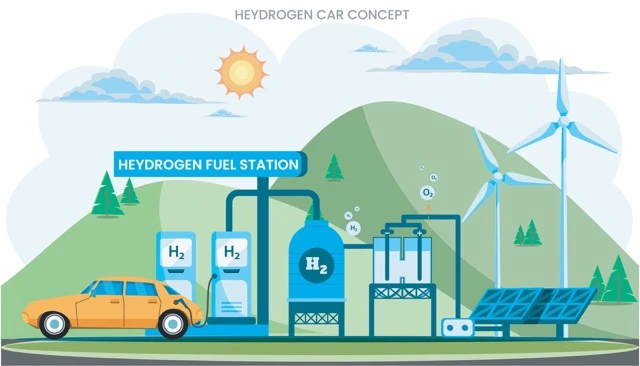In the ongoing debate over the future of automotive technology, the spotlight often falls on two contenders: Battery-Electric Vehicles (BEVs) and Hydrogen Fuel-Cell Electric Vehicles (FCEVs). While both promise to reduce carbon emissions and revolutionise transportation, recent developments and real-world data continue to reinforce the superiority of BEVs. Let’s delve deeper into why BEVs outshine FCEVs:
1. Practicality and Convenience:
The latest coverage from ABC News Australia highlights a crucial aspect of practicality – the ability to refuel quickly and efficiently. While hydrogen cars offer fast refuelling times, the infrastructure for hydrogen refuelling stations remains severely limited. There are fewer than 100 hydrogen cars on Australian roads, compared to approximately 87,000 electric cars. This stark difference in market penetration underscores the practical challenges facing FCEVs, in terms of refuelling infrastructure. Currently, there are only about a dozen hydrogen refuelling stations nationwide, while BEV owners can conveniently charge their vehicles at home or work using standard electrical outlets, providing unmatched convenience for daily commuting and long-distance travel.
2. Environmental Sustainability:
Despite claims of zero emissions from hydrogen cars, the production and distribution of hydrogen as a chemical itself presents significant environmental challenges. BEVs, on the other hand, can be powered by renewable energy sources such as solar or wind power, significantly reducing their carbon footprint. Additionally, advancements in battery technology are driving down the environmental impact of BEVs even further.
3. Cost-Effectiveness:
While hydrogen cars may offer certain advantages in niche applications, such as taxi fleets or security patrols, the overall cost-effectiveness of BEVs is undeniable. The high cost of hydrogen production and limited refuelling infrastructure contribute to FCEVs’ higher operating costs when compared to those of BEVs. As battery technology continues to improve and production scales up, the cost of BEVs is steadily decreasing, making them increasingly affordable for consumers.
4. Energy Efficiency:
The energy efficiency of BEVs far surpasses that of FCEVs. According to experts, the entire process of producing hydrogen, storing it, and converting it back into electricity for propulsion results in significant energy losses, with only about 20% of the initial energy ultimately used to power the vehicle. In contrast, BEVs utilize a more direct and efficient method of storing and utilizing electricity, resulting in higher overall energy efficiency and lower operating costs.
5. Market Adoption:
Despite significant investments in hydrogen technology, the market adoption of FCEVs remains limited. The latest data from Australia and worldwide show that BEVs vastly outnumber hydrogen cars on the roads. Government subsidies and incentives have failed to drive widespread adoption of FCEVs, highlighting the fundamental challenges facing hydrogen technology.
Conclusion
In conclusion, while hydrogen fuel-cell technology may have certain niche applications, the overwhelming evidence supports the superiority of battery-based electric vehicles. With expanding charging station infrastructure, decreasing costs, and ongoing advancements in battery technology, BEVs are poised to dominate the automotive market in the coming years. As consumers, policymakers, and industry stakeholders look towards a sustainable future, battery-based electric cars emerge as the choice for cleaner, greener transportation.
Explore our range of battery-electric vehicle guides here.

